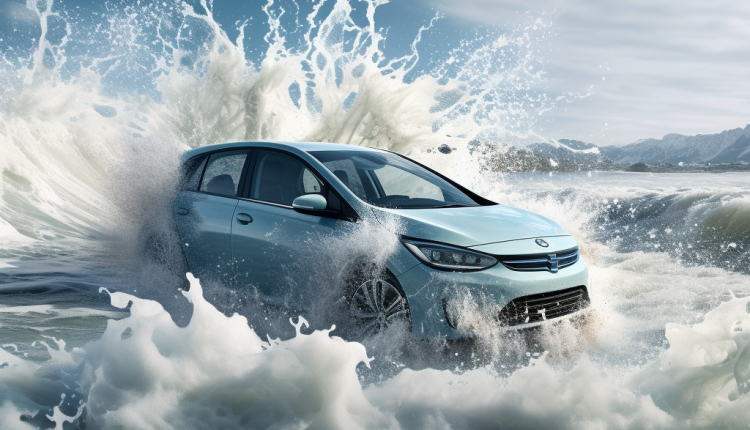
זאַלץ וואַסער ויסשטעלן: א נייַע סאַקאָנע פֿאַר אָונערז פון עלעקטריק וועהיקלעס
Tesla issues safety guidance for owners of vehicles exposed to saltwater
In the wake of Hurricane Idalia, Florida electric vehicle owners are facing an unexpected and potentially dangerous threat: saltwater exposure. The recent incident involving a Tesla car catching fire in Dunedin has raised alarm bells among hybrid and electric vehicle (EV) owners in the region. The Palm Harbor Fire Department has issued a warning, advising EV owners to move their vehicles from garages that have come into contact with saltwater.
The primary concern lies in the lithium-ion batteries commonly used in electric vehicles. Saltwater exposure can trigger a dangerous chemical reaction known as thermal runaway, leading to increased temperatures within the battery cells and an elevated risk of fires. This warning extends not only to electric cars but also to golf carts and electric scooters, as they too rely on similar battery technologies.
טאַמפּאַ פייער רעסקיו officials further elaborated on the dangers associated with saltwater damage to EVs. The chemical reactions initiated by saltwater can lead to a potentially catastrophic chain of events, making it crucial for owners to take immediate action to mitigate risks.
Tesla’s safety recommendations
Tesla, the manufacturer at the center of the recent incident, has provided specific guidance for owners of its vehicles. If there is a risk of submersion, Tesla advises relocating the vehicle to a safe location, preferably to higher ground. In the unfortunate event of saltwater exposure, Tesla recommends treating the situation as if it were a collision, urging owners to contact their insurance company promptly. Operating the vehicle is discouraged until it has been thoroughly inspected.
Maybe the most critical piece of advice from Tesla is the emphasis on safety. If any signs of fire, smoke, audible popping or hissing, or excessive heating are observed emanating from the vehicle, Tesla strongly encourages individuals to step away from the vehicle immediately and contact local first responders.
This incident serves as a stark reminder of the unique challenges electric vehicle owners may face, particularly in areas prone to natural disasters like hurricanes. While EVs offer numerous advantages, including environmental benefits and cost savings, it is essential for owners to be aware of potential risks and to take appropriate precautions to ensure their safety.
As technology continues to advance, it is likely that further safety measures and innovations will be developed to mitigate such risks. In the meantime, owners of electric vehicles in coastal regions, and indeed all EV owners, should remain vigilant and informed about the best practices for safeguarding their vehicles in various scenarios.



